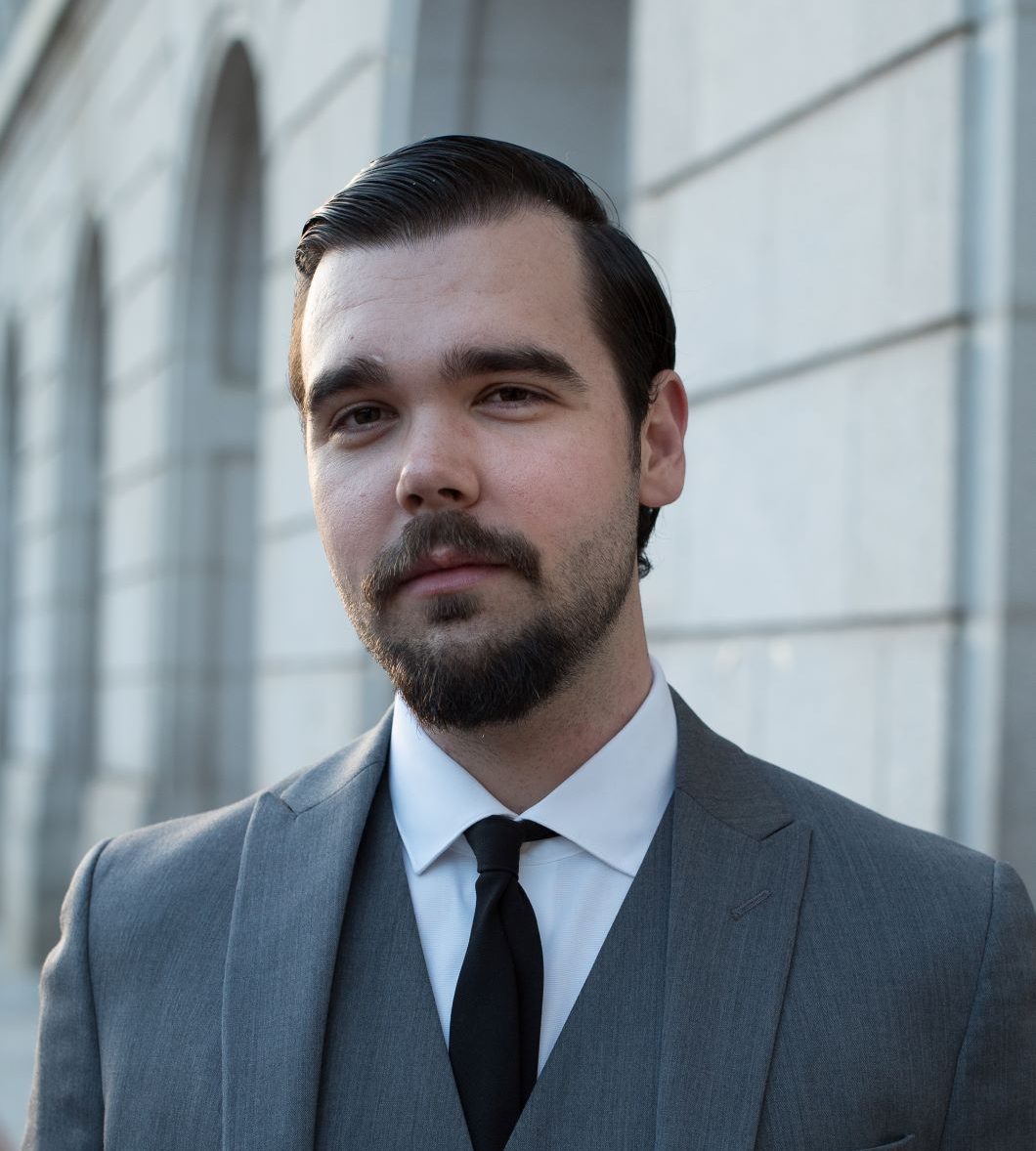Legal-Tech Startup Class Sparks Entrepreneurial Leap
It was only supposed to be an educational exercise. But for Justin MacFayden (’20) and Karolina Dziadosz (’21), a Spring 2020 project leapt from the classroom into the marketplace.
For their course on how to build a legal-tech startup, MacFayden and Dziadosz conceptualized a company based on a product that would enable people to file an insurance claim without the expense or complication of hiring a lawyer. Less than a year later, their company would be real enough to sell.
This sale, of ProSe Claims to Canadian firm PainWorth, is the latest evidence that UC Law SF’ LexLab positions students and clients for success in the rapidly growing field of legal tech.
“While we’ve been working to address access-to-justice problems in Canada, ProSe Claims has been tackling very similar problems in the United States,” PainWorth co-founder Mike Zouhri said in a statement. “We’ve been chatting with them for quite some time, and they really believe—just as we do—that the legal system is broken and incredibly slow at delivering justice.”
Launched in 2018, LexLab was the brainchild of Chancellor and Dean David Faigman, who saw the tech community growing around the school—including companies using new technologies to provide legal services—and proposed that UC Law SF play a facilitating role.
Professor Alice Armitage, already engaged with the tech community, volunteered to lead the initiative. The resulting LexLab would become UC Law SF’ innovation hub for emerging legal technologies.
Today, it serves three functions: accelerating legal tech startups, hosting community events on pertinent issues, and managing an academic concentration in legal tech for UC Law SF students.
The new concentration provided the impetus for Armitage’s class on building a startup. The idea behind the course was to help budding lawyers gain practical business skills. “Most lawyers aren’t in court most of the time,” she said. “They’re making presentations to colleagues, talking with clients, and presenting their ideas in a much less formal way.”
The central assignment of the class is for students to develop the concept for a legal-tech company, then pitch it to hypothetical investors.
Having worked in the insurance industry before attending law school, MacFayden knew right away that he wanted to create a way for people file a claim without involving a lawyer.
“We all pitched ideas early in the class and voted on them,” he said. “And because settling insurance claims isn’t exactly an exciting product on its face, it ended up in the dust bin. Professor Armitage pulled it out of the reject pile, explained its potential in the personal injury space, and got a revote on it.”
To tackle the project, MacFayden teamed up with Dziadosz. They explored monetization strategies, created a minimally viable product to launch, prepared a presentation deck, and pitched their ideas to a panel of judges Armitage assembled from the legal-tech community.
Then they kept going.
After graduating in May 2020, MacFayden worked full-time on developing the company, accompanied by Dziadosz, a rising 3L. They hired interns, found a friend to do the coding, researched the marketplace, tweaked the original idea to focus on a different aspect of the claims process, and built a functioning product.
PainWorth, a leading insurance-tech firm focused on streamlining claims processes, took note. In early 2021, the Canadian company expressed interest in acquiring ProSe Claims. And in April, less than a year after the idea germinated in a virtual UC Law SF classroom, the acquisition was complete.
Fresh from that heady experience, MacFayden and Dziadosz say that LexLab and Armitage were instrumental in setting them on a career path in legal tech, through the array of classes and programs plus connections “to everyone in legal tech you could want to talk to.”

